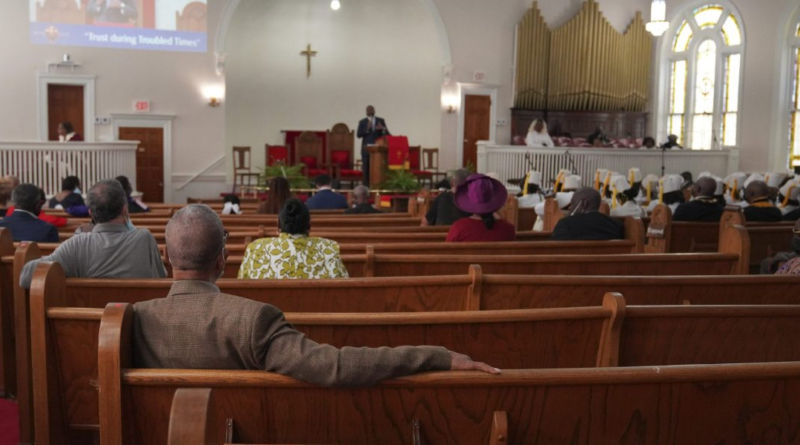Your pastor is burned out from the pandemic, too. Over half are thinking about leaving, survey says
Post-pandemic burnout is at worrying levels among Christian clergy in the U.S., prompting many to think about abandoning their jobs, according to a new nationwide survey.
More than 4 in 10 of clergy surveyed in fall 2023 had seriously considered leaving their congregations at least once since 2020, when the COVID-19 pandemic began, and more than half had thought seriously of leaving the ministry, according to the survey released Thursday by the Hartford Institute for Religion Research.
About a tenth of clergy report having had these thoughts often, according to the survey, conducted as part of the institute’s research project, Exploring the Pandemic Impact on Congregations.
The high rates of ministers considering quitting reflects the “collective trauma” that both clergy and congregants have experienced since 2020, said institute director Scott Thumma, principal investigator for the project.
“Everybody has experienced grief and trauma and change,” he said. Many clergy members, in open-ended responses to their survey, cited dwindling attendance, declining rates of volunteering and members’ resistance to further change.
“I am exhausted,” said one pastor quoted by the report. “People have moved away from the area and new folks are fewer, and farther, and slower to engage. Our regular volunteers are tired and overwhelmed.”
Some of these struggles are trends that long predated the pandemic. Median in-person attendance has steadily declined since the start of the century, the report said, and with fewer younger participants, the typical age of congregants is rising. After a pandemic-era spike in innovation, congregants are less willing to change, the survey said.
The reasons for clergy burnout are complex, and need to be understood in larger contexts, Thumma said.
“Oftentimes the focus of attention is just on the congregation, when in fact we should also be thinking about these bigger-picture things,” he said. A pastor and congregants, for example, might be frustrated with each other when the larger context is that they’re in a struggling rural town that’s losing population, he said: ”That has an effect on volunteering. It has an effect on aging. It has an effect on what kind of possibility you have to grow.”
About a third of clergy respondents were considering both leaving their congregation and the ministry altogether, with nearly another third considering one or the other.
Most clergy reported conflict in their congregations, but those considering leaving their churches reported it at even higher levels and also were less likely to feel close to their congregants.
Those thinking of quitting the ministry entirely were more likely to be pastors of smaller churches and those who work solo, compared with those on larger staffs and at larger churches.
Mainline Protestant clergy were the most likely to think of quitting, followed by evangelical Protestants, while Catholic and Orthodox priests were the least likely to consider leaving.
The percentages of clergy having thoughts of quitting are higher than in two previous surveys conducted by the institute in 2021 and spring 2023, though it’s difficult to directly compare those numbers because the earlier surveys were measuring shorter time periods since 2020.
The news isn’t all grim. Most clergy report good mental and physical health — though somewhat less so if they’re thinking of leaving their congregations or ministry — and clergy were more likely to have increased than decreased various spiritual practices since the pandemic began.
The results are based on a survey in the fall of 2023 of about 1,700 Christian clergy members from more than 40 denominations, including Protestant, Catholic and Orthodox bodies.
The survey echoes similar post-pandemic research. A 2023 Pew Research Center found a decrease in those who reported at least monthly in-person worship attendance, with Black Protestant churches affected the most.
___
Associated Press religion coverage receives support through the AP’s collaboration with The Conversation US, with funding from Lilly Endowment Inc. The AP is solely responsible for this content.




